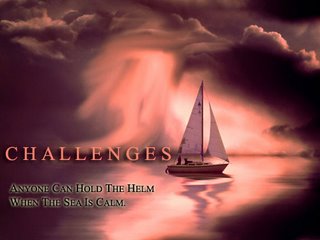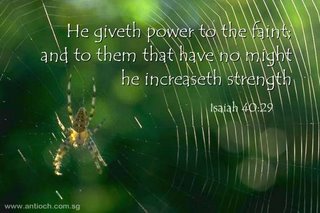 At 53, Eugene O'Kelly thought he had everything going for him. As CEO of KPMG, one of the largest US accounting firms, he enjoyed great power and prestige. Then he was told he had brain cancer and was given three to six months to live. This is an extract from his moving memoir of his last days
At 53, Eugene O'Kelly thought he had everything going for him. As CEO of KPMG, one of the largest US accounting firms, he enjoyed great power and prestige. Then he was told he had brain cancer and was given three to six months to live. This is an extract from his moving memoir of his last daysOne day not long ago, I sat atop the world. From this perch I had an overview that was relatively rare in business, a perspective that allowed me access to the inner workings of many of the world's finest, most successful companies and the extraordinary minds that ran them.
Overnight, I found myself sitting on a very different perch: a hard metal chair, looking across a desk at a doctor whose expression was way too full of empathy for my liking. His eyes told me I would die soon. It was late spring. I had seen my last autumn in New York.
The verdict I received in the last week of May 2005 - that it was unlikely I would make it to September - turned out to be a gift. Honestly. Because I was forced at the age of 53 to think seriously about my own death. Which meant I was forced to think more deeply about my life than I had ever done.
As CEO and chairman of KPMG - the US$4 billion (S$6.4 billion) 20,000-employee, century-plus-old partnership - one of America's Big Four accounting firms, I was not a man given to hypotheticals. But just for a moment, suppose there had been no death sentence. Wouldn't it be nice still to be planning, building and leading for years to come? Yes and no.
Yes, because I would like to have been around to see my daughter Gina graduate and marry and have children (in whatever order she ends up doing all that). To spend next Christmas Eve, the day before my older daughter Marianne's birthday, eating and talking and laughing the way we did every year. To travel and play golf with my wife of 27 years, Corinne, the girl of my dreams, and to share with her the retirement in Arizona we had planned for so long.
But I also say no. No, because, thanks to my situation, I had attained a new level of awareness, one I did not possess in the first 53 years of my life. It is impossible for me to imagine going back to that other way of thinking, when this new way has enriched me so. I lost something precious, but I also gained something precious.
In my past life, here was a Perfect Day: I would have a couple of face-to-face client meetings, my favourite thing of all. I would meet at least one member of my inner team. I would speak on the phone with partners. I would complete lots of the items listed in my electronic calendar. And I would move ahead in making our firm a great place to work, one that allowed our people to live more balanced lives.
For me personally, for any executive, but especially the top guy, that last plank in the platform was particularly difficult to achieve. Don't get me wrong: I loved my firm. I was passionate about accounting. (Don't laugh.) But the job of CEO, while of course incredibly privileged, was relentless. My diary was perpetually extended out over the next 18 months. I worked weekends and late into many nights. I missed virtually every school function for my younger daughter. My annual travel schedule averaged, conservatively, 240,000km.
For the first 10 years of my marriage, when I was climbing the ladder at KPMG, Corinne and I rarely went on vacation. Over the course of my last decade with the firm, I did manage to squeeze in workday lunches with my wife. Twice.
Before this starts to sound like complaining, I must be honest: As long as I could handle such a high-pressure position, I wanted it. As profound as my devotion to and love for my family were, I could not have settled for a job just because it guaranteed that I could make PTA meetings. People don't walk into the top spot. They are driven.
When Corinne and I showed up at the neurologist's office on Tuesday, May 24, we were both convinced that the drooping of muscle in my cheek and at the corner of my mouth was caused by something stress-related, probably Bell's palsy. I was asked some questions, then put through what seemed a pretty standard physical exam. The neurologist said she wanted me to come in for an MRI first thing the following morning.
A week later, the biopsy that was supposed to take two hours took three. Halfway through, the surgeon came out to tell Corinne that the first tissue sample he had removed from my brain was 'necrotic', dead. Not dying, but already dead.
Later, when the doctor could address Corinne and me together, he recommended radiation, which might provide a couple of extra months more than whatever I had left. There was no cure, he said. 'This is terminal.' My days as a man at the top of his game, vigorous and productive, were done, just like that.
A new life
THE whole of my life, I had expected people to operate at a high standard. If they did not, they might lose my confidence. I don't mean to say that I lacked compassion; it's just that in the business world, our index for evaluating people was competency. It had to be. My daily experience at the radiation clinic made me realise that was not the index I could use any more. Things don't go according to plan. In fact, they almost never did.
Sitting in that room, waiting for my turn to have the waffle-mask put over my face so they could zap my brain with laser beams, I watched people around me grow frustrated. I tried not to let it happen to me. It was at the clinic that I really began to understand acceptance. Having entered the final phase of my life, what choice did I have but to accept it? Apparently, I was not too old to learn something new. You cannot control everything.
One of my tasks before I died was to 'unwind', or close or, as I saw it, beautifully resolve my personal relationships. I wanted to do the very thing that wiser people advise us to do: to stop long enough to think about the people we love and why we love them.
A few days after the diagnosis had been confirmed, I sat down at the dining-room table and drew this diagram. The outermost circle was made up of classmates, acquaintances, neighbours, people who had enriched my life just by being in it. When I sat down to list all the people who merited inclusion, I was astounded to see it came to almost 1,000. An unbelievable number. I could not possibly 'close' all of these relationships. Those that I did address, maybe half, I closed almost exclusively through mail. A number of them I did by phone.
In each case, I tried to focus on something especially meaningful. I attempted to turn the occasion into what I had come to think of as a Perfect Moment. A Perfect Moment was a little gift of an hour or an afternoon. Its actual length was never the issue.
The key thing was that you had to be open to a Perfect Moment. The radiation machine breaks down; one hour is going to come and go, an hour you can hardly spare; but then you accept that machines break down. You don't get frustrated. You focus instead on something pleasing. The beautiful poem your daughter wrote. The colour of the sky out the window.
Given my natural thoroughness, I had to remind myself how easy it could be to spend lots of time with the outer circle, which would ultimately be at the expense of the inner circles. I thought about how, during my previous life, I might have unconsciously been too consumed by the outermost circle. At work, with constant demands on my time, I had got into the habit of meeting certain people, good people, but nonetheless fifth-circle people. Was it necessary to have breakfast with them four times a month? I could have done less of that. Perhaps I could have found time, in the last decade, to have had a weekday lunch with my wife more than...twice?
Where had I found the nerve to press so hard for our firm to rework its culture, encouraging our partners and employees to live more balanced lives, when my own was out of balance? I realised that being able to count a thousand people in that fifth circle was not something to be proud of. Please don't misunderstand: the people who populate it are worthwhile, and belong in the first circle of other people. They are just not the people who should have consumed the time and energy that they did for me.
I moved further inward and I marvelled at how many Perfect Moments I was having. As much as I had loved the hustle and bustle of my previous life, I could not help but think back on how rare such moments had been. Of course there had been Perfect Moments in my past. The day I married Corinne. The day I adopted Marianne. The day Gina was born. But almost all those moments one could have seen coming. They were not the mundane, fabric-of-life stuff.
Maybe other people appreciate the perfection in small moments; I was just too caught up in my fast-paced, high-pressure life to ever get at the sublimeness embedded in them. I experienced more Perfect Moments and Perfect Days in two weeks than I had in the past five years.
Saying goodbye
UNWINDING relationships with close lifetime friends was easiest, I had noticed, when my friends had a belief in God and/or a very solid marriage or partnership. Those who lacked both did not handle our closing well. Often there was a third reason: they themselves were suffering through some big personal issue, and I served as a troubling reminder of how much they yet had to deal with.
Our conversation brought them not pleasure but rather pain and anger. Of course I did not mean that to happen, but neither could I help it. Some friends wanted to prolong our final encounter. They continued to call me. "I'd like this to be it," I would say. "Trying to improve on a Perfect Moment never works." Not a popular answer. Too final. Kind of cold, actually.
Although I was not there yet, my mind wandered often to my unwinding with Gina. She had recently turned 14, and, like anyone that age, she had her days. I wanted her to understand my pride in and profound love for her. But I struggled to come up with the best way for a father to make his daughter see him for who he was, rather than for how long he had stayed.
This was the best day of my life. Corinne, Gina and I were at Lake Tahoe, where we had a vacation home. We took a boat out. For the first time, I sat in front, the only place Gina ever sits. The water looked like glass. There were hardly any other boats out, or it seemed that way. We crossed the lake. We seemed to be riding not in the water but on it, skating along the surface. It seemed as if I was part of the water. It went on for miles and miles. I loved the sensation of being so close to the water. Or really, it was not so much that I loved anything, but just that I had the sensation, felt it fully.
Corinne and I decided that afternoon that we would both have our ashes spread upon the waters of Emerald Bay, in a very particular spot that we loved. I was getting closer to zero miles an hour.
My mother and my brother flew to Tahoe. I took my mother's hand and told her I was in a good place. Later, my brother and I talked alone. He was angry that this should be happening to me. "Your anger won't do anyone any good," I said. I told him to take the energy he was spending being angry at the world, double it, and channel it into love for his children (or even more love, I should say, because William already loved his daughters and son dearly). He promised me he would. It was a Perfect Day. I felt complete. Spent but complete.
Eugene O'Kelly died on Sept 10, 2005. His wife Corinne wrote the final chapter of the book. Chasing Daylight: How My Forthcoming Death Transformed My Life by Eugene O'Kelly (McGraw-Hill) is available at major bookshops.
Drop me an email at rejoice468@yahoo.com if you wish to join our grief support group or you know of someone who m




